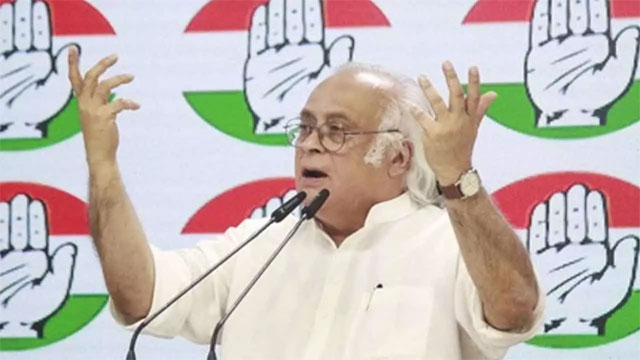Daijiworld Media Network - New Delhi
New Delhi, Aug 31: The Congress party has launched a strong attack on the Modi government following Prime Minister Narendra Modi’s bilateral meeting with Chinese President Xi Jinping in Tianjin, accusing the Centre of legitimising Chinese territorial aggression and undermining national security.
Congress general secretary Jairam Ramesh questioned whether this “softened stance” reflects a new normal in India’s security doctrine—one marked by Chinese aggression and Indian silence. The meeting between Modi and Xi Jinping, where both leaders reportedly agreed to build stable and amicable ties and promote economic and people-to-people exchanges, drew sharp criticism from the Opposition.

Ramesh argued that the meeting should be evaluated in the context of the Galwan Valley clash in June 2020, where 20 Indian soldiers lost their lives. He claimed that instead of holding China accountable, Prime Minister Modi had given a "clean chit" to Beijing on June 19, 2020. He reiterated the Indian Army’s demand for the full restoration of the status quo along the Line of Actual Control in Ladakh and criticised the government for failing to achieve that while still advancing reconciliation with China.
Citing the deputy chief of Army Staff Lt. Gen Rahul Singh’s remarks on China's coordination with Pakistan during Operation Sindoor, Ramesh said the government had silently accepted the China-Pakistan alliance and was now rewarding China with official visits.
Ramesh also raised economic concerns, accusing the government of allowing unchecked dumping of Chinese products into Indian markets, which he said was severely damaging micro, small, and medium enterprises. He further criticised the government’s silence on China’s proposed hydropower project on the Yarlung Tsangpo River, which he argued poses serious risks to India’s Northeast region.
The Congress party’s comments reflect continued dissatisfaction with the government’s handling of the China border issue since 2020. While the government maintains that the diplomatic engagement is essential for regional stability and economic cooperation, the Opposition insists that India's sovereignty and strategic interests are being compromised.